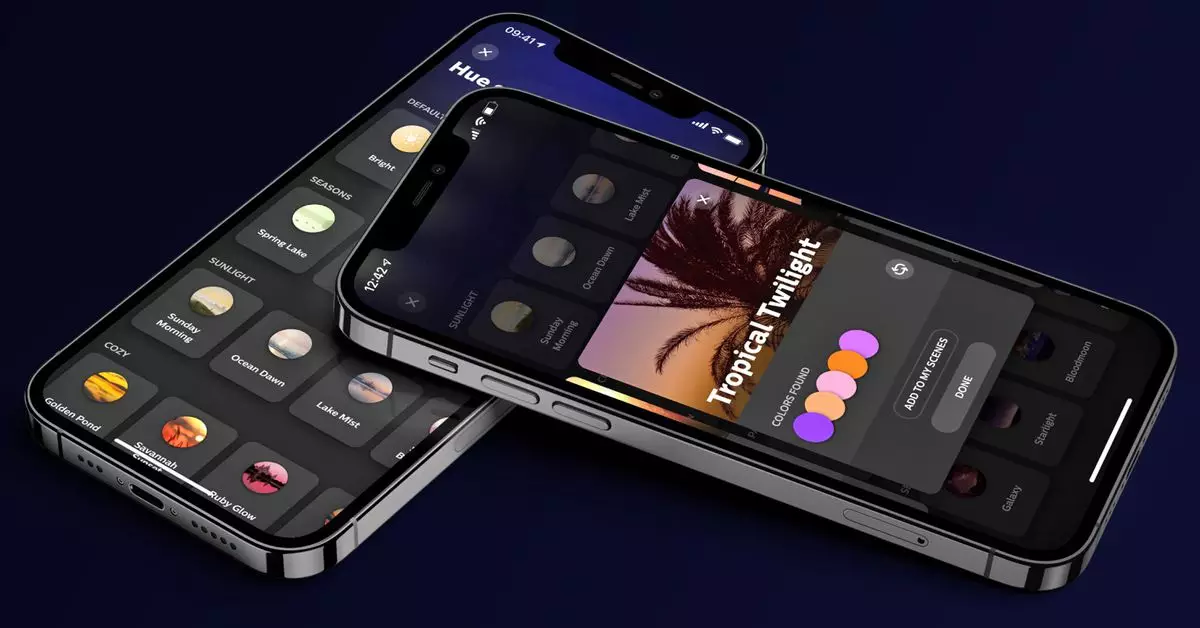In a bold step towards integrating technology with personal creativity, Philips Hue has unveiled its AI-powered lighting assistant that promises to redefine the way users interact with home lighting systems. Set to roll out in early 2025, this innovative feature allows Philips Hue users to curate custom lighting scenes tailored to their specific occasions, moods, or aesthetic preferences. By simply typing a command such as “Create a scene for a cozy movie night” or utilizing voice instructions, users can leverage artificial intelligence to generate the perfect ambiance at the touch of a button.
This generative AI functionality stands out by not just recommending existing lighting scenes from the extensive Philips Hue gallery but also crafting completely unique atmospheres based on the user’s descriptions. This adds a layer of personalization that was previously difficult to achieve without manual adjustments to brightness and color. As smart homes increasingly reflect individuality, Philips Hue’s assistant empowers users to fine-tune their environments without needing advanced technical knowledge.
It’s essential, however, to consider the implications of such technology. While ease of use is a major plus, the reliance on AI-generated solutions raises concerns about how much creativity is given over to algorithms. Will users still feel a sense of ownership over their lighting environments, or will the technology dilute personal expression by narrowing down choices to what the AI interprets?
Philips Hue is not entering a vacant marketplace; it is joining robust competition in the smart lighting sector. Notably, Govee’s AI Lighting Bot offers similar functionalities, responding dynamically to voice commands to create vibrant lighting displays. Meanwhile, Nanoleaf, another player in this space, has also introduced features that allow users to evoke certain themes or scenes through concise phrases. The competitive landscape suggests that while Philips Hue may lead in terms of brand loyalty and recognition, innovation must continuously evolve to maintain relevance.
Furthermore, the integration of AI with Philips Hue’s expansive product range means that existing devices will gain enhanced functionalities, ensuring that customers feel their investments are being maximized with progressive updates.
The introduction of the AI-powered lighting assistant isn’t the sole announcement from Philips Hue. Alongside this feature, the company launched an update for its Hue Sync TV app, expanding compatibility to LG televisions, enhancing the interactive viewing experience by synchronizing lighting with on-screen content. In addition, the new Philips Hue Datura ceiling light offers customizable color effects and two controllable lights, showcasing Philips Hue’s dedication to adapting and innovating in an evolving tech landscape.
Overall, as Philips Hue prepares for the release of this new assistant, it will not only be navigating the intricacies of AI integration but also contending with rapidly shifting consumer expectations and burgeoning competition. As the smart home ecosystem continues to expand, it will be fascinating to observe how Philips Hue leverages its brand equity and technological advancements to strengthen its position in this dynamic market.

